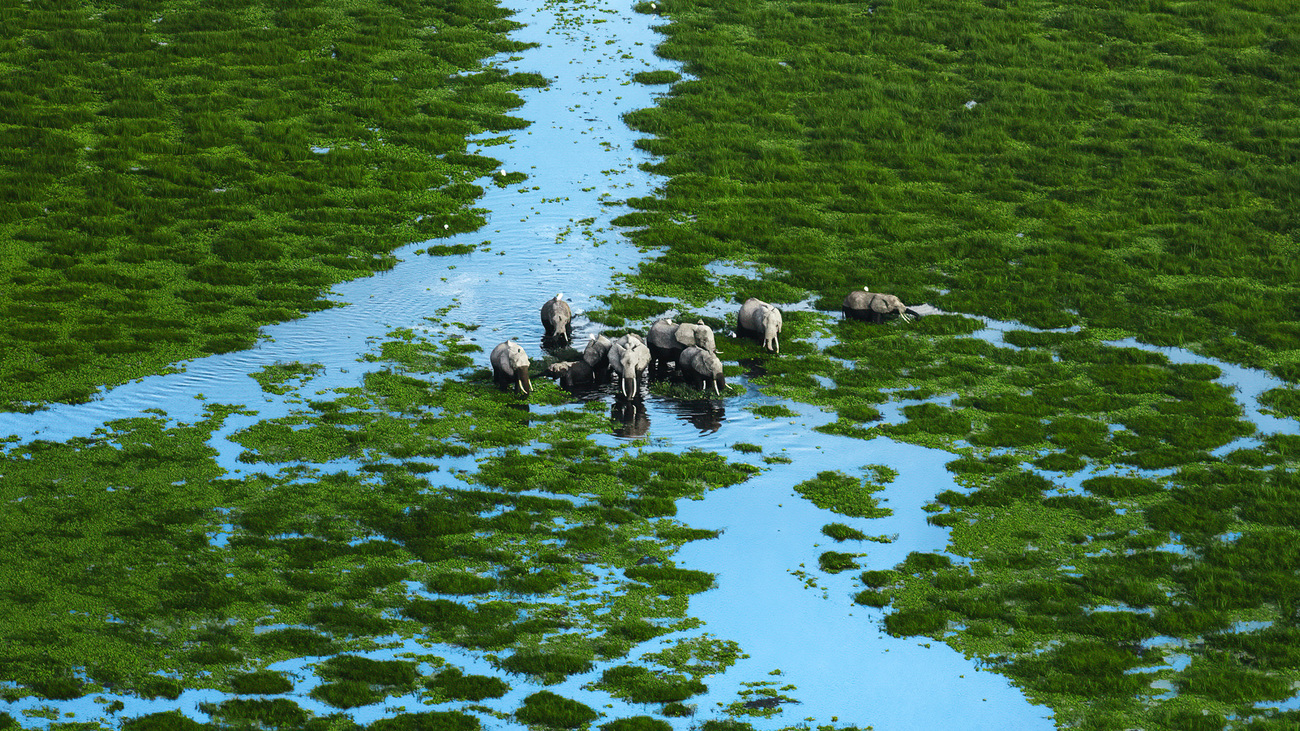New report highlights need for integration of wildlife conservation into national climate action plans
New report highlights need for integration of wildlife conservation into national climate action plans

(Dubai, UAE – 8 December 2023) – The global challenges of climate change and biodiversity loss are undeniably linked, according to a new report, Wildlife Conservation and Ecosystem Protection: Missed opportunities for climate action in Africa and the LDCs (Least Developed Countries).
Published by IFAW, the new report highlights the overlooked role of wildlife conservation and ecosystem protection in addressing the climate crisis.
The report analyzes the Nationally Determined Contributions (NDCs) of African countries and Least Developed Countries (LDCs) to understand the extent to which wildlife conservation is being considered in the climate action plans of countries that are host to major wild animal populations. Data reveals that, for countries that have high level of biodiversity but also face high level of climate vulnerability, wildlife conservation offers a significant opportunity to increase the scale of climate mitigation whilst also supporting climate resilience and adaptation for wildlife and people.
Drawing on recent scientific research, the report shows that wild animals are the unsung heroes of climate action. It presents evidence that wild animals play a vital role in supporting natural ecosystems to remove carbon from the atmosphere, but that this immense potential has not yet been captured in national climate action plans. By acting as ‘ecosystem engineers’ wild animals greatly increase the capacity of ecosystems to capture and store carbon, providing countries that are rich in biodiversity with a powerful resource that can be harnessed both to tackle the climate crisis, and raise revenue from carbon and climate finance.
Specifically, the report finds that while the majority of African countries and LDCs have made some commitments that relate to ecosystem protection and landscape restoration in their NDCs, only 40% have so far included wildlife conservation as a means of taking climate action. But of the 580 wildlife related commitments identified in the NDCs, less than 10% were directly related to wildlife conservation.
“While there is a growing interest in using nature-based solutions to tackle climate change, the immense potential of wild animals for climate mitigation is not yet being harnessed effectively,” said Simon Addison, the report's author and Climate Change Advisor at IFAW. “The science shows that wild animals can dramatically increase rates of carbon sequestration. Protecting and restoring populations of certain species groups could collectively facilitate the capture of more than 95% of the amount of CO2 needed every year to help keep global warming below the 1.5°C threshold. Such wild animals include whales, wildebeest, and African forest elephants."
Importantly, less than 3% of the wildlife related commitments were costed in the NDCs, meaning that it is unclear what the financial needs for such initiatives are.
“This is a major opportunity for biodiversity rich nations in the Global South,” added James Isiche, Director of IFAW Africa. “It could catalyze significant flows of finance to address the climate and biodiversity crises simultaneously and secure sustainable, climate-resilient economic development prospects for generations to come.”
The report suggests specific actions that developing countries can take to harness the potential of wildlife conservation and ecosystem protection for climate action to leverage their wildlife resources to meet the Paris goals and raise climate funding. But the report also underlines the need for international finance providers to recognize how wildlife conservation can play a significant role in addressing climate change and to support African nations and LDCs in realizing its potential.
“By recognizing wild animals and their habitats as allies in the fight against climate change, we can supercharge climate mitigation and adaptation, and meet our climate and biodiversity goals more quickly,” added Isiche.
###
Visual editors: Downloadable photo and video can be found at https://spaces.hightail.com/space/8JLldw8B0Q
Side event: IFAW will host an official COP28 side event on Saturday, 10 December, from 11:30-13:30, in SE Room 2 in the Blue Pavillion, and via livestream at: Protecting biodiversity is a critical tool for addressing the impacts of climate change
Media contact:
Stacey Hedman
Director of Communications, Global Programs at IFAW
shedman@ifaw.org
+1 508 737 2558
Related content
every problem has a solution, every solution needs support.
The problems we face are urgent, complicated, and resistant to change. Real solutions demand creativity, hard work, and involvement from people like you.